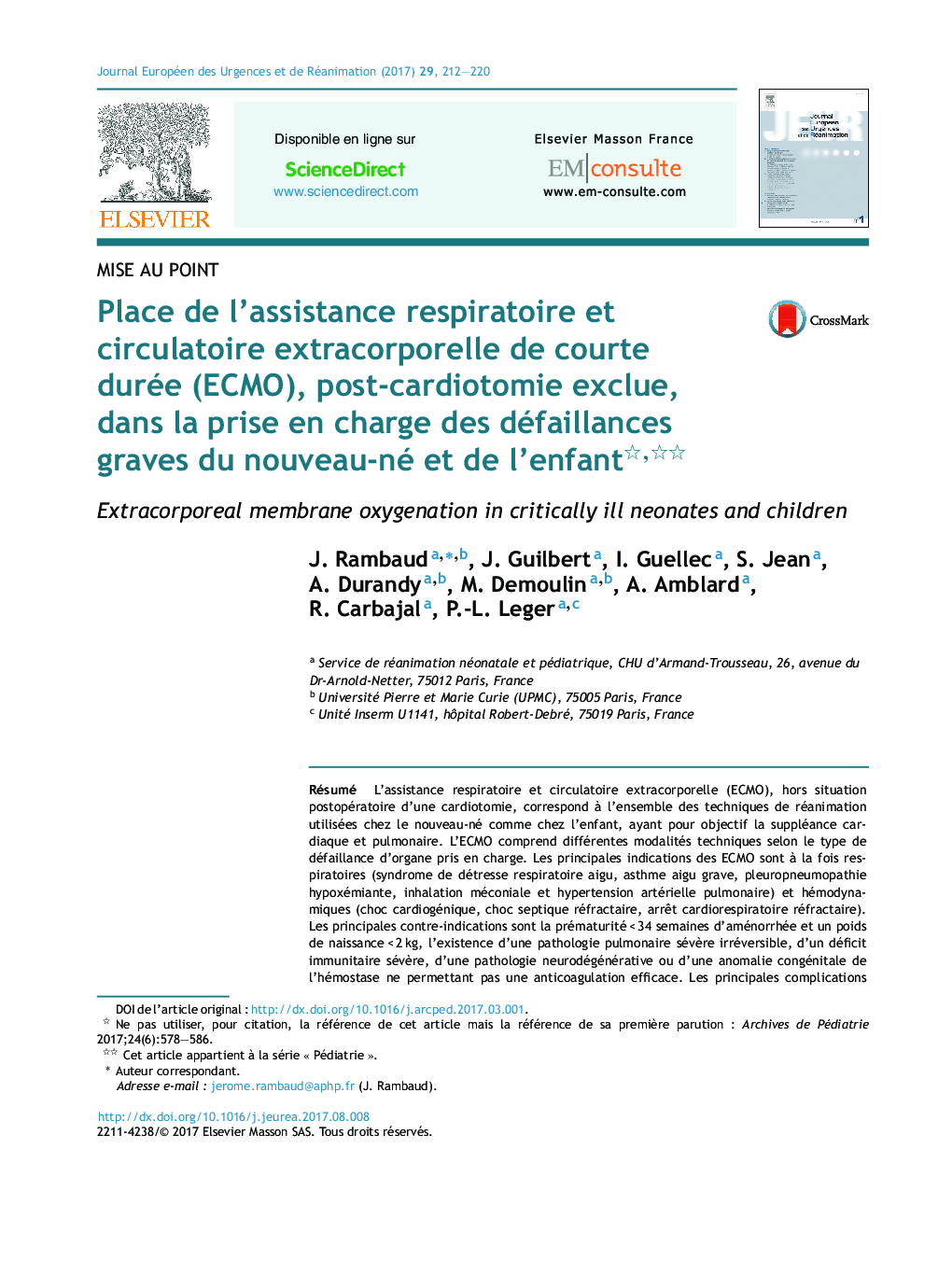| Article ID | Journal | Published Year | Pages | File Type |
|---|---|---|---|---|
| 8719969 | Journal Européen des Urgences et de Réanimation | 2017 | 9 Pages |
Abstract
Extracorporeal membrane oxygenation is used as a last resort during neonatal and pediatric resuscitation in case of refractory circulatory or respiratory failure under maximum conventional therapies. Different types of ECMO can be used depending on the initial failure. The main indications for ECMO are refractory respiratory failure (acute respiratory distress syndrome, status asthmaticus, severe pneumonia, meconium aspiration syndrome, pulmonary hypertension) and refractory circulatory failure (cardiogenic shock, septic shock, refractory cardiac arrest). The main contraindications are a gestational age under 34Â weeks or birth weight under 2Â kg, severe underlying pulmonary disease, severe immune deficiency, a neurodegenerative disease and hereditary disease of hemostasis. Neurological impairment can occur during ECMO (cranial hemorrhage, seizure or stroke). Nosocomial infections and acute kidney injury are also frequent complications of ECMO. The overall survival rate of ECMO is about 60Â %. This survival rate can change depending on the initial disease: from 80Â % for meconium aspiration syndrome to less than 10Â % for out-of-hospital refractory cardiac arrest. Recently, mobile ECMO units have been created. These units are able to perform ECMO out of a referral center for untransportable critically ill patients.
Related Topics
Health Sciences
Medicine and Dentistry
Emergency Medicine
Authors
J. Rambaud, J. Guilbert, I. Guellec, S. Jean, A. Durandy, M. Demoulin, A. Amblard, R. Carbajal, P.-L. Leger,
